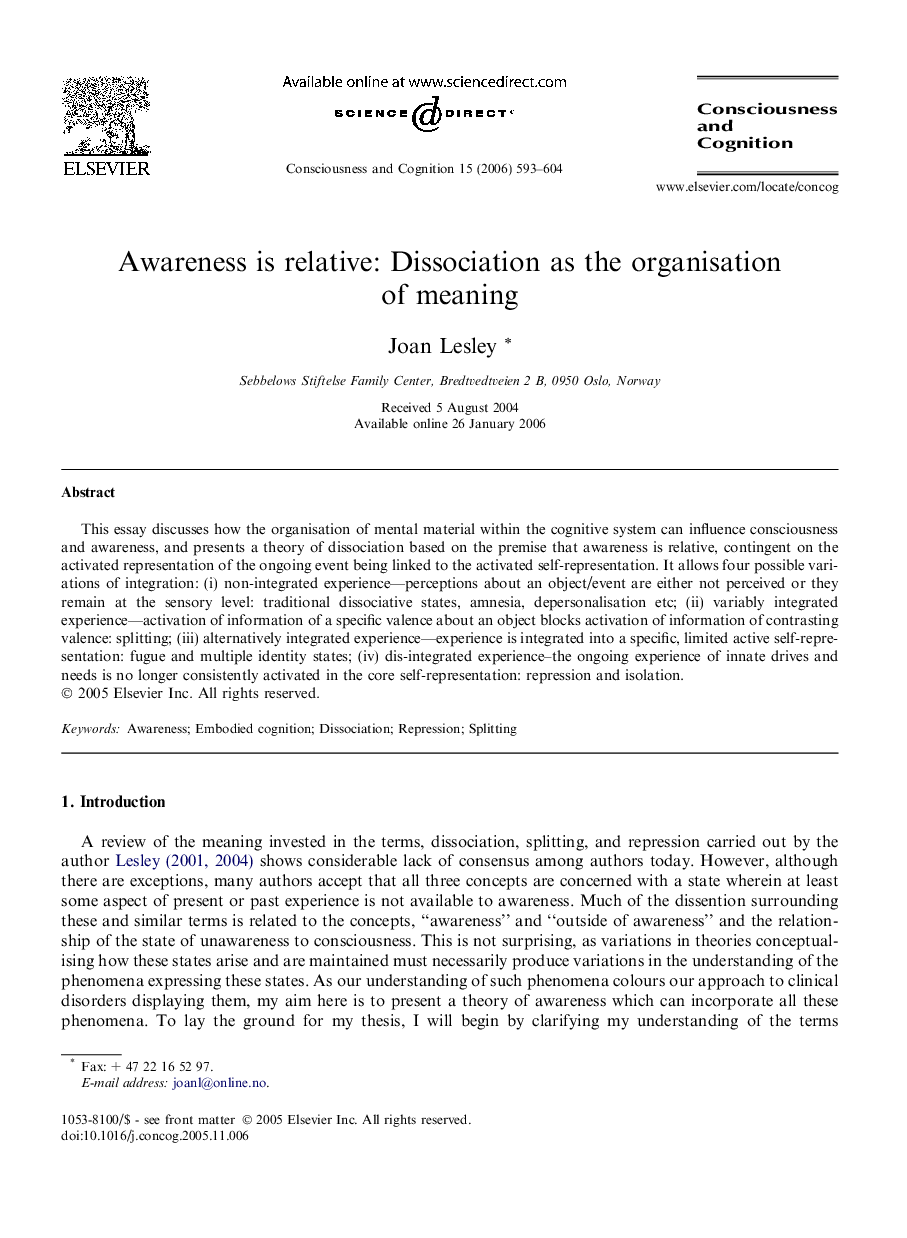| Article ID | Journal | Published Year | Pages | File Type |
|---|---|---|---|---|
| 927991 | Consciousness and Cognition | 2006 | 12 Pages |
This essay discusses how the organisation of mental material within the cognitive system can influence consciousness and awareness, and presents a theory of dissociation based on the premise that awareness is relative, contingent on the activated representation of the ongoing event being linked to the activated self-representation. It allows four possible variations of integration: (i) non-integrated experience—perceptions about an object/event are either not perceived or they remain at the sensory level: traditional dissociative states, amnesia, depersonalisation etc; (ii) variably integrated experience—activation of information of a specific valence about an object blocks activation of information of contrasting valence: splitting; (iii) alternatively integrated experience—experience is integrated into a specific, limited active self-representation: fugue and multiple identity states; (iv) dis-integrated experience–the ongoing experience of innate drives and needs is no longer consistently activated in the core self-representation: repression and isolation.
